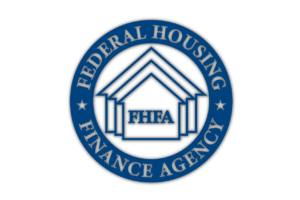Fair Housing

HUD & FHFA Enter into Fair Housing, Lending MOU
HUD and the Federal Housing Finance Agency (FHFA) entered a Memorandum of Understanding (MOU) to enhance their enforcement of the Fair Housing Act. The MOU allows HUD and FHFA to enforce fair housing and fair lending requirements by promoting information sharing, coordination on investigations, compliance reviews and the ongoing monitoring of Fannie Mae and Freddie Mac.

HUD Partially Reinstitutes Obama-Era AFFH Rule
HUD published an interim final rule, which partially restores the Affirmatively Furthering Fair Housing (AFFH) rules promulgated under President Barack Obama (D). The rule requires HUD grantees (PHAs, as well as state and local governments) to regularly certify compliance with the Fair Housing Act’s AFFH requirement and, in doing so, commit to taking steps to remedy their unique fair housing issues.

Urban Institute Analysis of Proposed Federal Housing Policy, Program Reforms
In a new brief, Federal Reforms to Strengthen Housing Stability, Affordability and Choice, the authors highlight the following eight frequently proposed federal reforms to existing housing programs and policies, identify their support among relevant housing stakeholders, and discuss evidence of their impact on housing stability, affordability and choice.

HUD Withdraws Trump-Era Fair Housing Appeal, Acts to Prevent Gender Identity and Sexual Orientation Discrimination
The Department of Justice recently withdrew the Trump-era HUD appeal in Massachusetts Fair Housing Center v. HUD – a case that challenges the 2020 disparate impact rule, which limited plaintiffs’ ability to bring disparate impact claims.

Senate Banking Committee Nomination Hearing for HUD Secretary Designate Fudge
Last week the Senate Committee on Banking, Housing and Urban Affairs held a nomination hearing for Rep. Marcia Fudge (D-OH) to be HUD Secretary.

White House Memo on Fair Housing, Disparate Impact
The memo directs HUD to examine two rules from the Trump administration for their impact on the federal government’s ability to affirmatively further fair housing, as required by the Fair Housing Act of 1968.

America’s Sordid History of Exclusionary Zoning
The Counselors of Real Estate published an article by James Burling, vice president of legal affairs at Pacific Legal Foundation, on America’s Sordid History of Exclusionary Zoning. Burling traces the history state-sponsored, racially motivated exclusionary housing laws via George McMechen’s efforts to obtain a home in the suburbs.

Court Provides Preliminary Injunction, Stay on HUD’s Disparate Impact Rule
The U.S. District Court for the District of Massachusetts issued a stay and preliminary injunction to prevent HUD from implementing its new Disparate Impact rule. The suit claimed the new rule violates the Administrative Procedure Act (APA) and drew support and declarations from over a dozen community-based organizations.

HUD Issues Disparate Impact Rule, DDAs and QCTs Notice
HUD published a final rule on its implementation of the Fair Housing Act’s disparate impact standard, which will become effective October 24. HUD’s office of Policy Development and Research issued a notice designating Difficult Development Areas (DDAs) and Qualified Census Tracts (QCTs) for 2021 LIHTC properties.

House Passes FY 2021 HUD Appropriations
Last week the House passed H.R. 7617, which provides fiscal year (FY) 2021 funding for six appropriations subcommittees, including HUD. The House bill is expected to provide adequate appropriations to renew existing Housing Choice Vouchers and Project-Based Rental Assistance, and provides increases for most programs, including the Community Development Block Grants, HOME Investment Partnerships Program (HOME), Section 202 and Section 811, which would also receive additional funding through emergency infrastructure investments. The bill also contains two amendments that would block the Trump Administration’s recent regulatory action on the Disparate Impact Rule and the Affirmatively Furthering Fair Housing (AFFH).

Virginia Adds Four New Protected Classes
Effective July 1, 2020, the Virginia Fair Housing law was updated to include four new protected classes; source of income, status as a veteran, gender identity and sexual orientation in addition to race, color, religion, national origin, sex, elderliness, familial status and disability.

HUD Terminates Obama Administration AFFH Rule
HUD released a new final rule, Preserving Community and Neighborhood Choice, which would replace the Obama Administration’s Affirmatively Furthering Fair Housing (AFFH) rule. Under the new rule, a federal grantee would be required to certify that it has affirmatively furthered fair housing. The final rule has yet to be officially published in the Federal Register. Comments are due 30 days after publication.